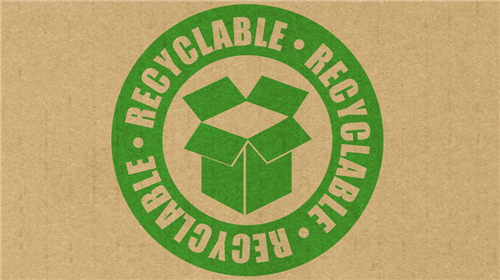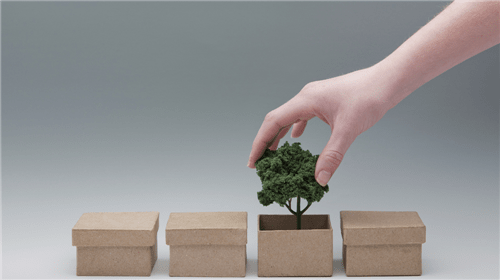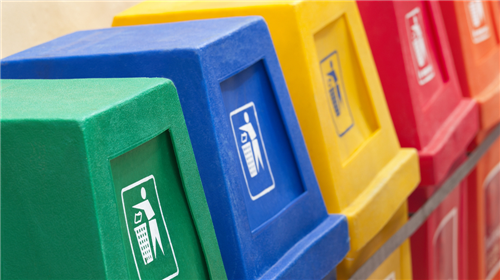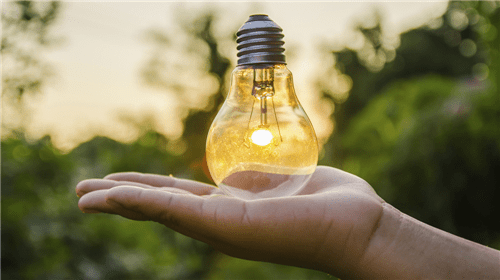With the Ecommerce now the fastest growing retail market in the world, there’s a greater need than ever to package goods safely and securely whilst they’re in transit. Retailers need to ensure that your order reaches you quickly, whilst also remaining in the pristine condition you’d expect to find it in at a shop. This is essential, as it’s reported that replacing a damaged item can cost up to 17 times the cost of shipping, and negative feedback can be costly and damaging to Ecommerce businesses too. But what’s all this packaging doing to the environment?

A US study into the subject predicts that demand for protective packaging in the US will increase by 4.9% a year, and cost-effective but environmentally damaging items like bubble wrap and air pockets will be in demand. Most of this cannot be recycled, and will eventually end up in landfill.
What Is Eco Friendly Packaging?

To address the problems above, many retailers are turning their attention to environmentally friendly packaging solutions. But just what does eco-friendly packaging mean?
Environmentally friendly packaging definition:
“Eco-friendly packaging is easily recycled, and is safe for individuals and the environment. It makes use of renewable energy, and uses as much renewable or recycled materials as possible. “
It is also known as green packaging, or sustainable packaging. Eco packaging causes less damage to the environment than other types of packaging due to falling in to one of 3 possible categories:
It can be reused
It can be recycled
It’s biodegradable
Some eco-friendly packaging items can be used again in their original form, others are made of materials that can be recycled and made into something else and others simply decompose in an environmentally friendly way.
Which Packaging Materials Are Environmentally Friendly?

There are many different packaging options that can be eco-friendly. Here’s a run-down of some of the most popular:
Paper
Glass
Cardboard
Some Plastics
Plant Starch Material (PSM)
As mentioned earlier, there are different categories of green packaging. Some items may be eco-friendly because they can be recycled or reused, others may naturally decompose.
Which packaging materials are biodegradable?
Biodegradable materials can be used for protective packaging, and disposal is less of an issue because these materials eventually return to the environment they came from. These include:
Paper – a great option because it is recyclable, reusable and biodegradable. Often the paper we see used for packaging has already been created using a high percentage of recycled paper.
Cardboard – just like paper, cardboard can be used again or recycled, and is biodegradable as long as it isn’t laminated.
Corn Starch – protective ‘peanuts’ can be made from corn starch or plant starch material (PSM). These fillers can be used instead of plastic bubble wrap or polystyrene packing, and when they’re finished with, this type of packaging fully biodegrades.
Biodegradable Plastic – now often used for plastic bags & some envelope windows, this plastic begins to decompose when exposed to sunlight.
Which packaging materials are recyclable?
Some packaging materials can be recycled, and whilst this is beneficial to the environment, it still requires an investment of energy to salvage the raw material. Recyclable packaging materials include:
Paper
Cardboard
Glass
Some Plastics
Some Metals
Eco Packaging Solutions

If you’re thinking about how to make your packaging eco-friendly, then we’ve got some green packaging ideas for you. Here’s how you can address some common packaging materials and make them more environmentally friendly:
eco packaging bags – perhaps you use plenty of poly bags to pack small items and you’d like to know how to choose a more environmentally friendly option. The good news is, you can do just that! These are now available made from biodegradable materials. Look for ‘biodegradable clear bags’.
eco packaging boxes – as we learned above, cardboard is recyclable so if you’re using cardboard boxes you’re already half way there. However, the eco-conscious should look out for boxes that are already made from recycled materials. Colours and finishes may vary as stock changes, but you’ll know you’re going the extra mile to help the environment.
eco protective padding – sure, bubble wrap is handy and it protects things well. It can be reused but it usually can’t be recycled and it doesn’t biodegrade. What are your alternative padding options for fragile items? Well, some bubble wrap is now made from biodegradable plastic, so that’s something to look out for. You can also replace your usual padding with packing peanuts made from corn or other plant starch. Alternatively use recycled paper or recycled tissue for an environmentally friendly solution.
eco packaging tape – it is possible to seal your boxes with tape that’s extremely eco-friendly. Look for ‘eco paper packing tape’ and you’ll find tape made from recycled paper. It also uses a latex based adhesive that’s strong enough to seal your boxes securely, whilst making sure the tape is completely biodegradable.
We hope this has inspired you to think about how sustainable your packaging practices are. Even a small change to make all your packaging more environmentally friendly can make a difference, so give some careful consideration to the changes you could make.

